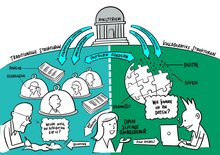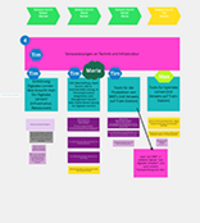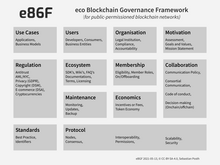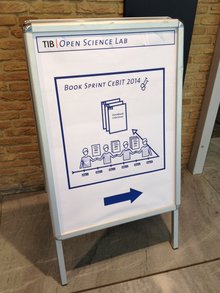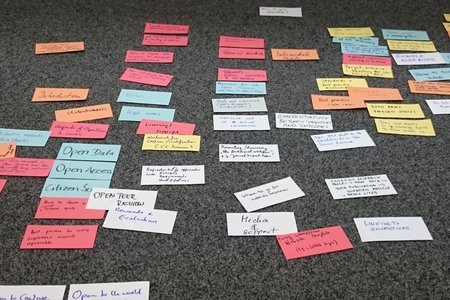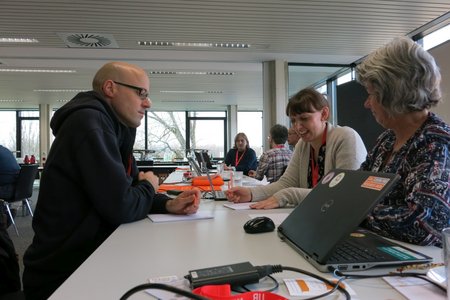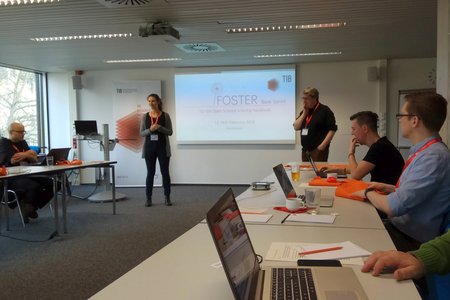Book sprints
Book Sprints are a method of agile knowledge generation and knowledge transfer that has been used for more than ten years in companies, NGOs, as well as in research and educational institutions.
Originally used in the field of software documentation, the Book Sprint is a moderated/facilitated process in which eight to twelve invited experts create a documentation or handbbok within three to five days that reflects a previously defined field of application or knowledge.
Our know-how
The TIB – Leibniz Information Centre for Science and Technology has several years of experience with the successful implementation and support of Book Sprints.
We can help with the systematic conversion of individual expert knowledge into structured knowledge – in the form of digital or printed manuals, documentations or teaching/learning materials.
How book sprints work
How Book Sprints work
Lambert Heller explains in 15 minutes how Book Sprints work. Why is this agile method used to consolidate new and dynamic areas of knowledge into an open knowledge resource? How do Book Sprints help to build the digital capabilities of an organization? What should be considered when planning and executing a Book Sprint?
(in German only)
Also of interest:
How to run a book sprint – in 16 steps
Lambert Heller and Helene Brinken share insights from their own experience of facilitating a book sprint to write the Open Science Training Handbook .



